The Anthropology Society of FIB Udayana University held PPPM in Bali Aga Pedawa Village
On Wednesday, February 16 2022, one of the Bali Aga
villages in Buleleng Regency was visited by a group of students and lecturers
from the Anthropology Study Program, Faculty of Cultural Sciences, Udayana
University (FIB Unud). The presence of the anthropology community who have
pocketed negative Swab Antigen letters, was welcomed in a family manner by
village officials and traditional leaders in the context of carrying out
research and community service in Pedawa.
Research and Community Service Training (PPPM) is an
annual agenda of the Anthropology Study Program and Relatives of Anthropology
Students FIB Unud. Activities specifically aim to apply ethnographic research
methods, and practice anthropology in the form of dedication. Meanwhile, in
general, it aims to introduce anthropological study objects to students and
strengthen student communication across generations, as well as prepare the
Pedawa community's resources in welcoming tourism.
This year's PPPM takes the theme "Pedawa Tourism
Village in the Frame of Advancement of Culture and Intangible Cultural
Heritage" as a form of realization of Law no. 5 of 2017 concerning the
Promotion of Culture, the Ministry of Education and Culture's Program on Intangible
Cultural Heritage, and the establishment of Pedawa's status as a Bali Aga
tourist village. Field activities in Pedawa Village were carried out for 5 days
and 4 nights, where students and lecturers spread out to 14 residents' houses
in 6 official banjars. This research is divided into 7 groups that focus on the
topic: (1) Kinship System and Social Organization; (2) Knowledge System; (3)
Religion and Belief System; (4) Technology System; (5) Arts System; (6)
Livelihood System; and (7) Tourism.
During their stay at the research location, the
anthropology community received a lot of support and obtained field data from
all elements of society, including village officials, traditional leaders, palm
sugar MSME activists, and various communities including: Pokdarwis, Kayoman,
Getah Uyung, Youth Pedawa Solidarity, and Balawa . During the time of research,
the Anthropology Study Program and the community owned by Pedawa village
carried out a service in the form of cleaning up around the village
environment, as well as planting palm tree seedlings which had been an icon of
Pedawa where its existence was now being eroded by several other productive
plants such as durian, salak, and especially the clove tree.
In the midst of his busy schedule accompanying
students, Aliffiati, S.S., M.Sc. as the Coordinator of the Anthropology Study
Program FIB Unud hopes that the collaborative relationship with Pedawa can run
in a sustainable manner and the village can become one of the anthropology
laboratories of FIB Unud. In his statement, he who is familiarly called Mrs.
Fifi said: "First we would like to thank all elements in Pedawa Village
for accepting our presence. Of course we hope that this collaboration will not
stop at this activity, we already have several student theses anthropology of
Udayana University on Pedawa village. However, we need to do a more in-depth
study of untouched study objects, so that Pedawa village can become our
laboratory."
A word of thanks also came from Putu Mardika, S.H as the Head of Pedawa Headquarters when sending off the group at the Pedawa Village Office. As one of the 5 villages (SCTPB: Sidetapa, Cempaga, Tigawasa, Pedawa, and Banyusri) which have been designated as Bali Aga tourism villages, Headmaster of Pedawa is grateful for the 5 days of activities which have gone well. He believes that the presence of the anthropology community of FIB Unud in the midst of society can be a valuable experience for them in welcoming tourism and promoting Pedawa as a tourist village, as well as refuting the stereotypes that have been confusing so far.
The event was closed with art performances presented
by each research group to the Pedawa community. Both parties looked
enthusiastic in the nuances of emotion when remembering their past
togetherness. They also prayed for each other to be given health so they could
meet again. (ows)
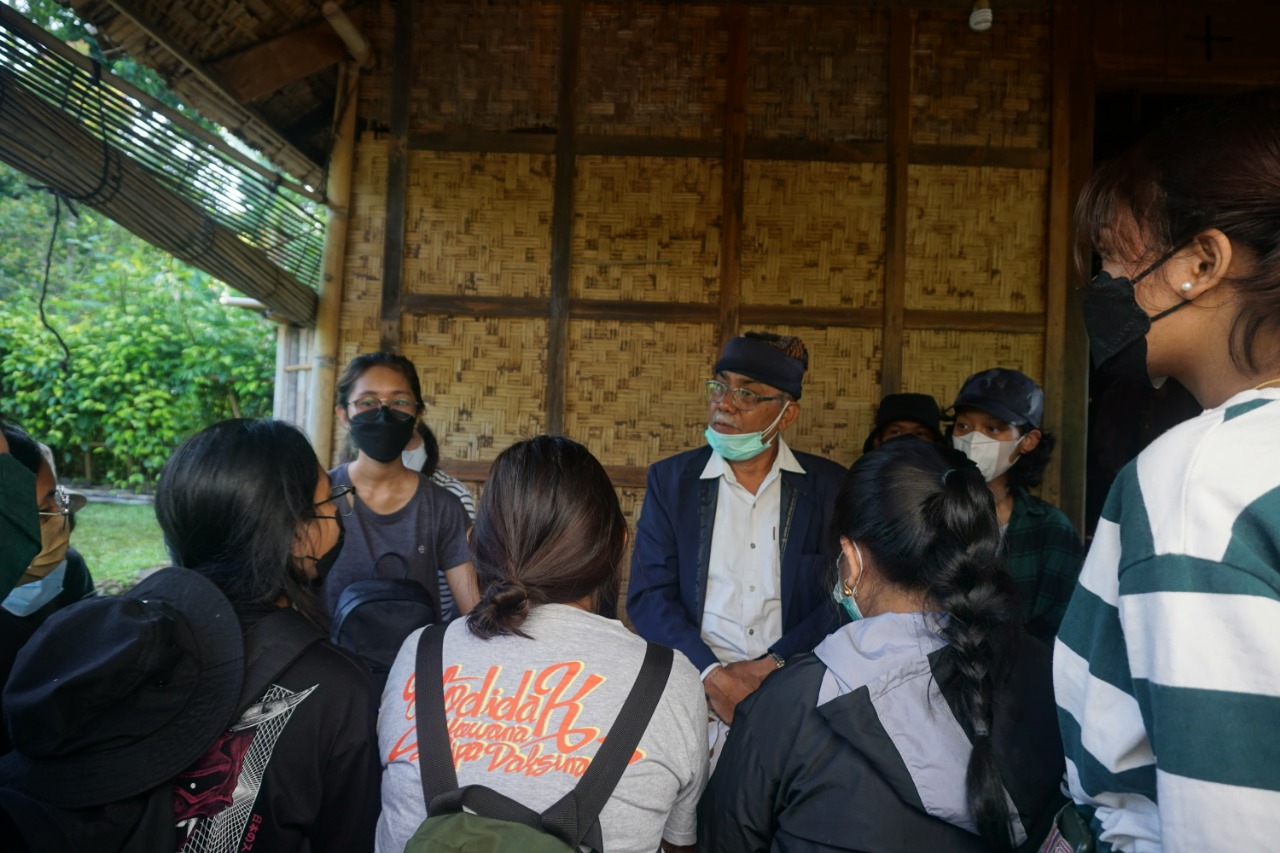


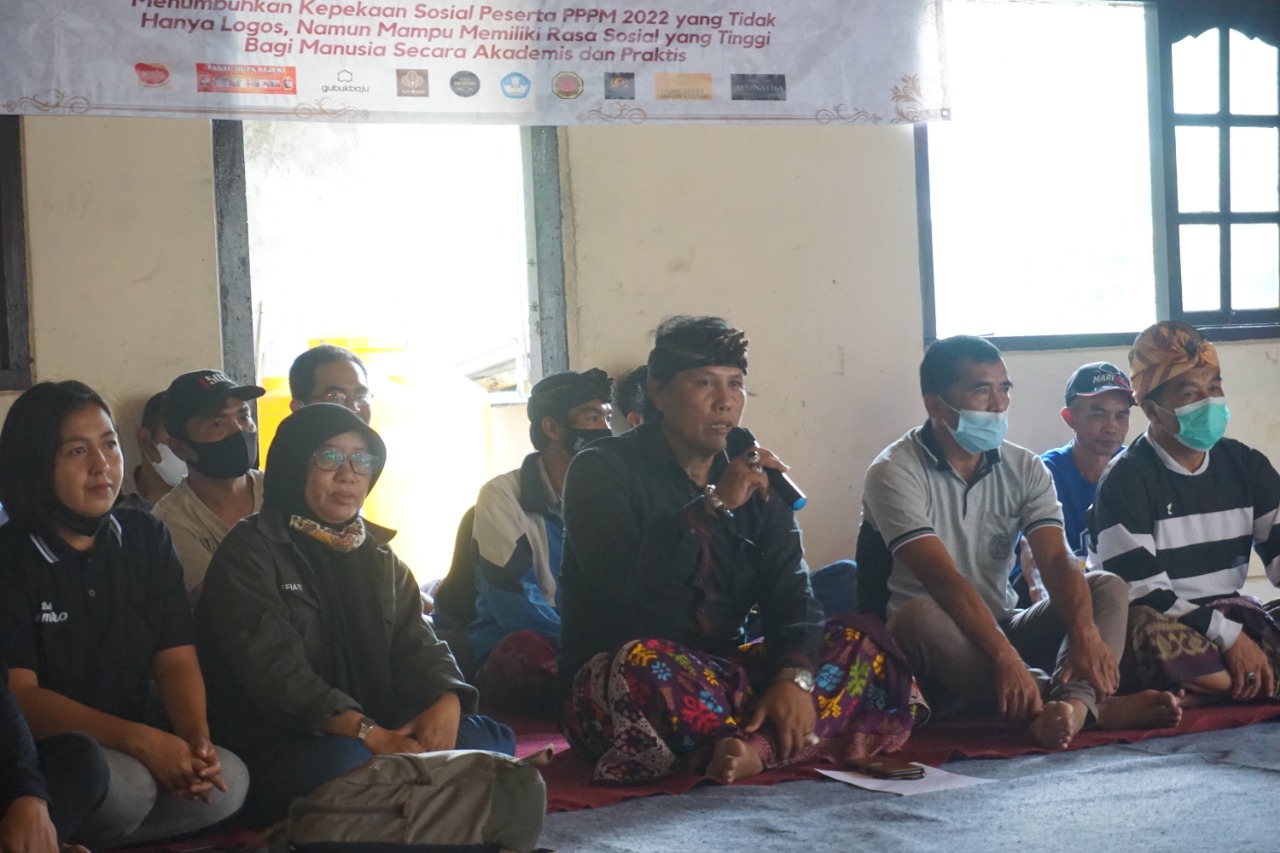



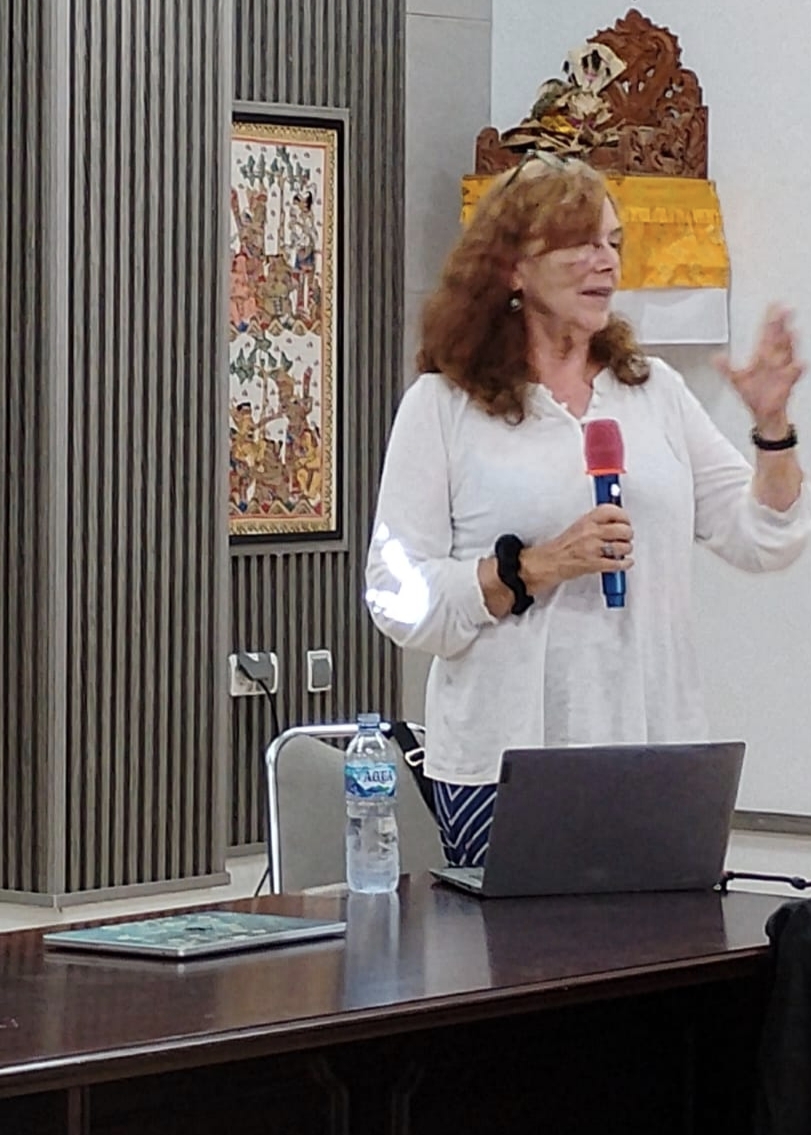
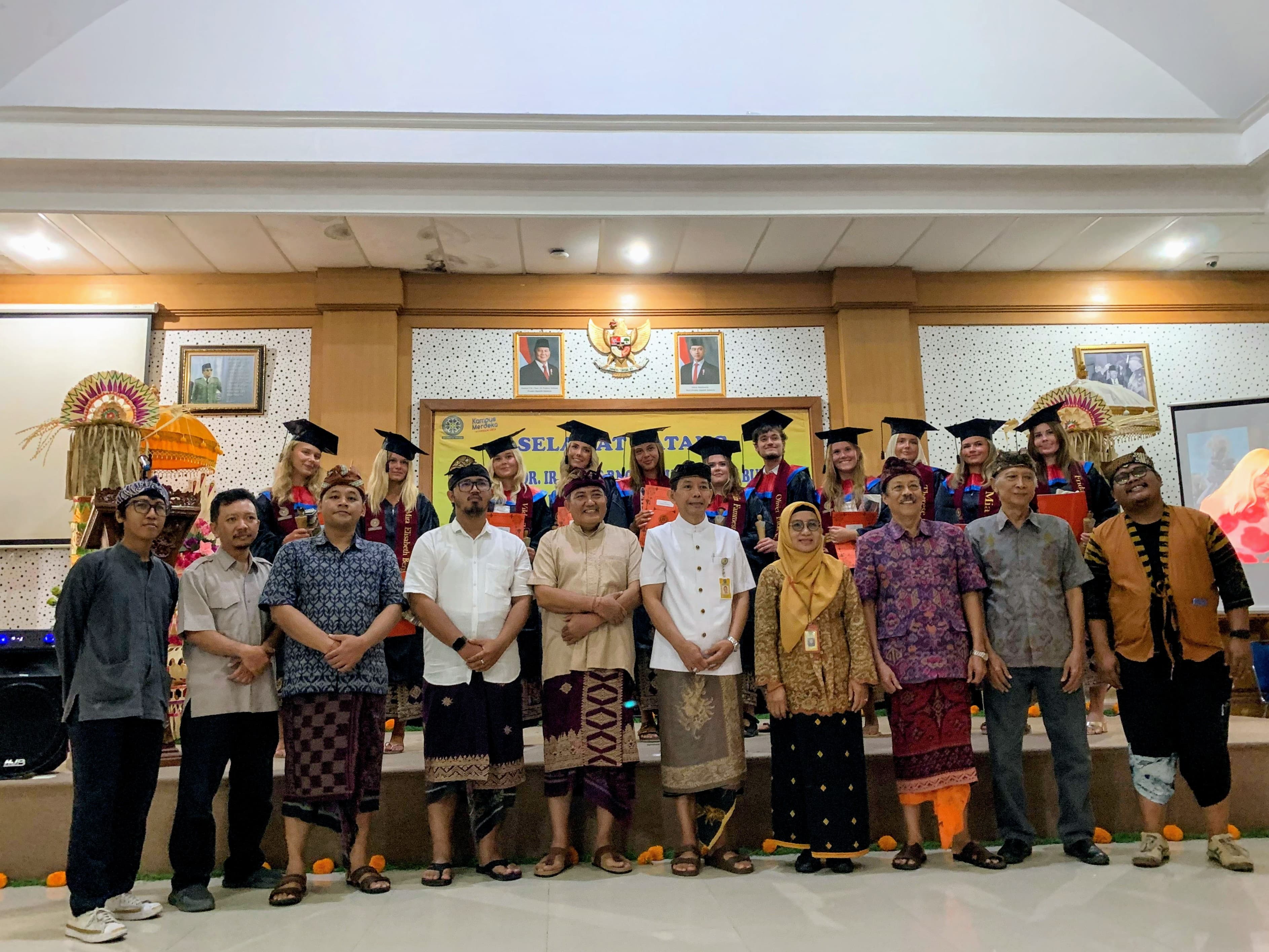
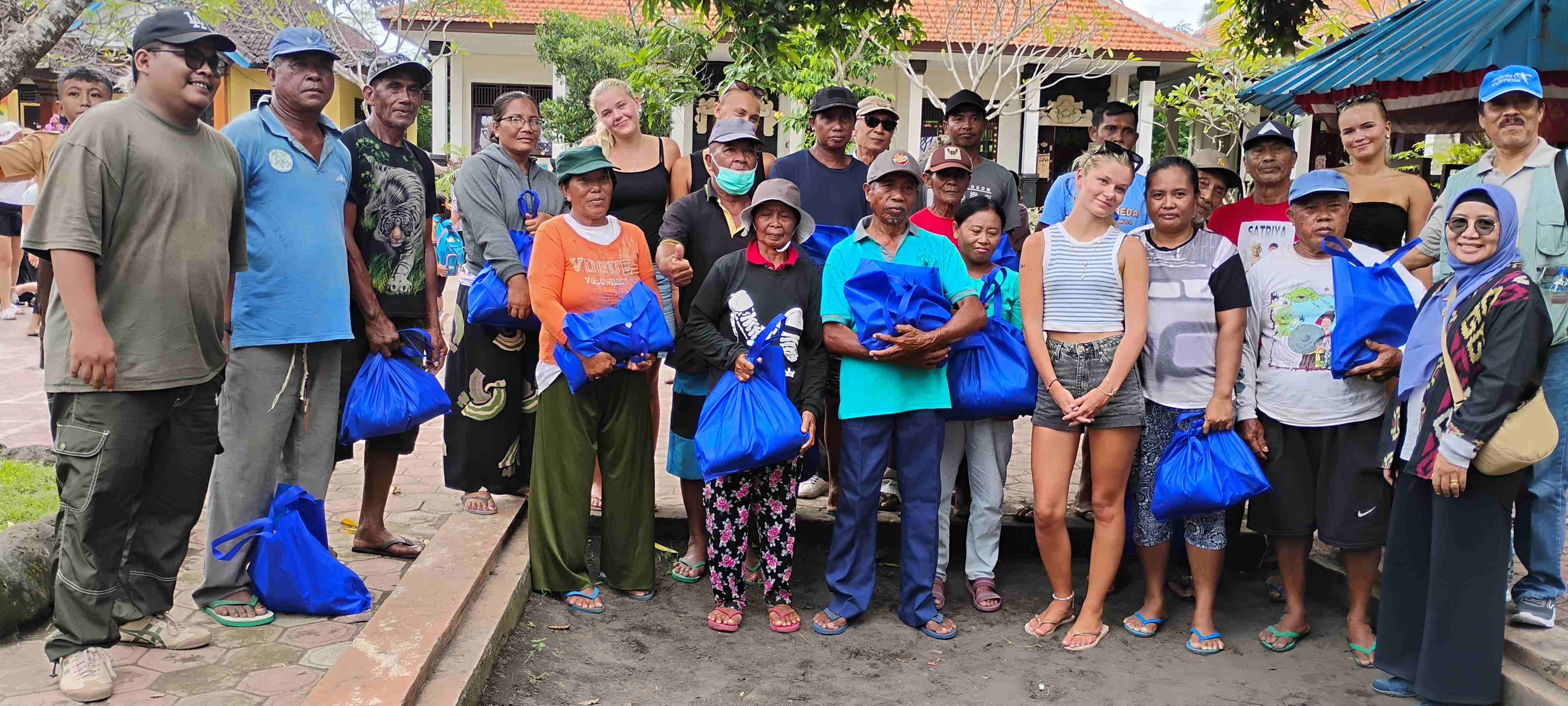
FACULTY OF HUMANITIES